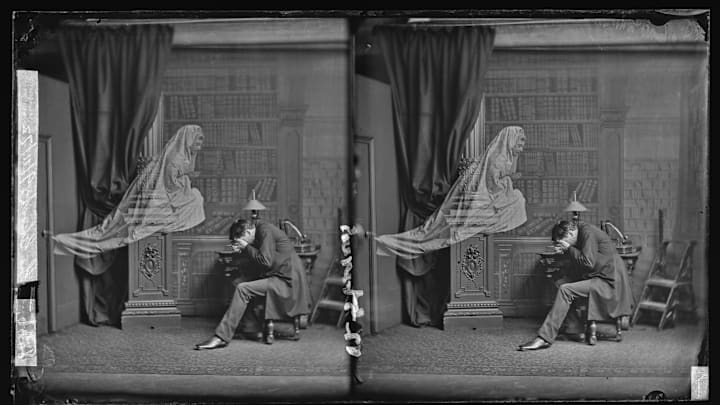Welcome back to our chapter-by-chapter reading of Harry Potter and the Chamber of Secrets. Halloween at Hogwarts is always an interesting time of year and this is no exception. True, Harry, ron and Hermione don't run into a twelve-foot mountain troll, but they get thoroughly haunted for an evening and see the first threat against enemies of the Heir of Slytherin. Let's read on.
Mourning with those that mourn
Distress is a major theme in this chapter, whether in the form of Ginny Weasley "looking pale" nearly two months into her first year at Hogwarts or Nearly-Headless Nick being dismissed as invalid by the Headless Hunt and "Sir Properly Decapitated-Podmore." These two things are fairly minor inconveniences in the grand scheme of things - though I have to appreciate Percy Weasley being a good older brother for making his sister accept help - but there are greater dangers lurking about.
It would be easy to see this as a comical chapter. After all, we have Mr. Filch's embarrassment at the thought of Harry reading his pamphlet on the Kwikspell Course that proves he "wasn't a proper wizard." Nick gets upstaged at his own deathday party by people who see him as lesser and who interrupt his speech with a rousing game of Head Hockey. We meet Moaning Myrtle and find out that nobody, not even the normally compassionate Hermione, has sympathy for her. On the other hand, the chapter ends with the first petrification of a resident of Hogwarts castle and another occurrence of hate speech from Draco Malfoy.
Lesson Learned: Stand with the downtrodden
In Harry Potter and the Philosopher's Stone, we had the wonderful chapter in which Neville Longbottom was encouraged and defended by fellow Gryffindors. In this book, Ron vomited slugs after trying to do the right thing as a Muggle-lover. It's sort of disappointing when there's apathy about suffering and outright participation in rudeness.
There are a lot of people being oppressed and targeted in the world today. They are even being harassed on large scales and having policies put in place to make life more difficult for them. We don't have to be personally connected to LGBTQIA+ people or know immigrants in our communities to care about them. We don't have to share a religion, an ethnic background, or even a perspective on the world with somebody to stand up for their rights.
The ability to have compassion is an infinite resource and one that could have been practiced better in this chapter and in our own lives. Let's do what we can to remember that lesson.
